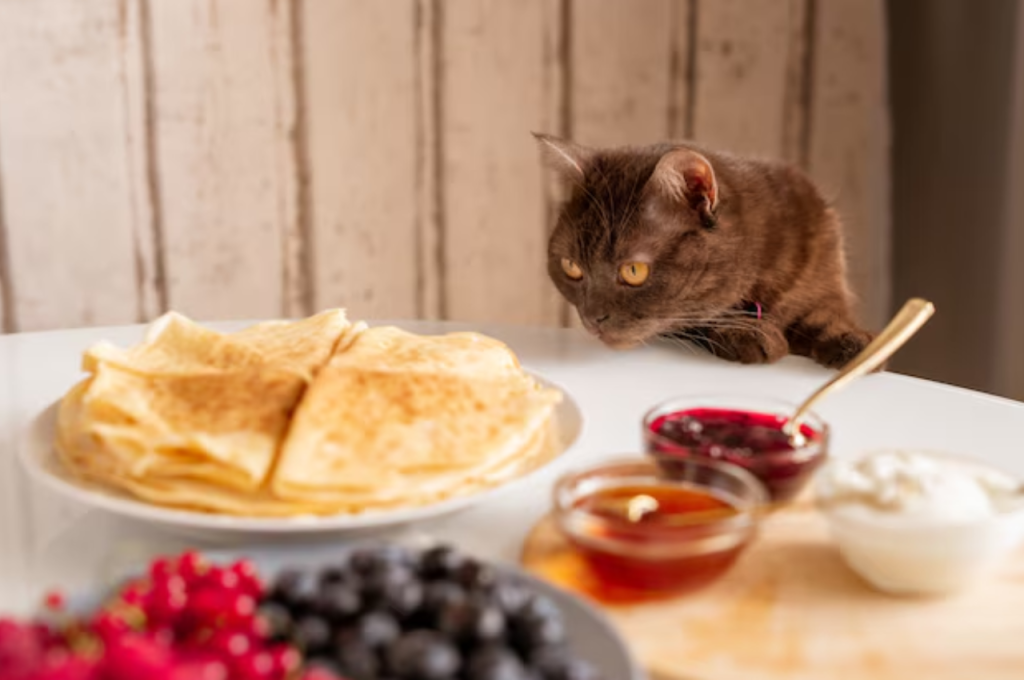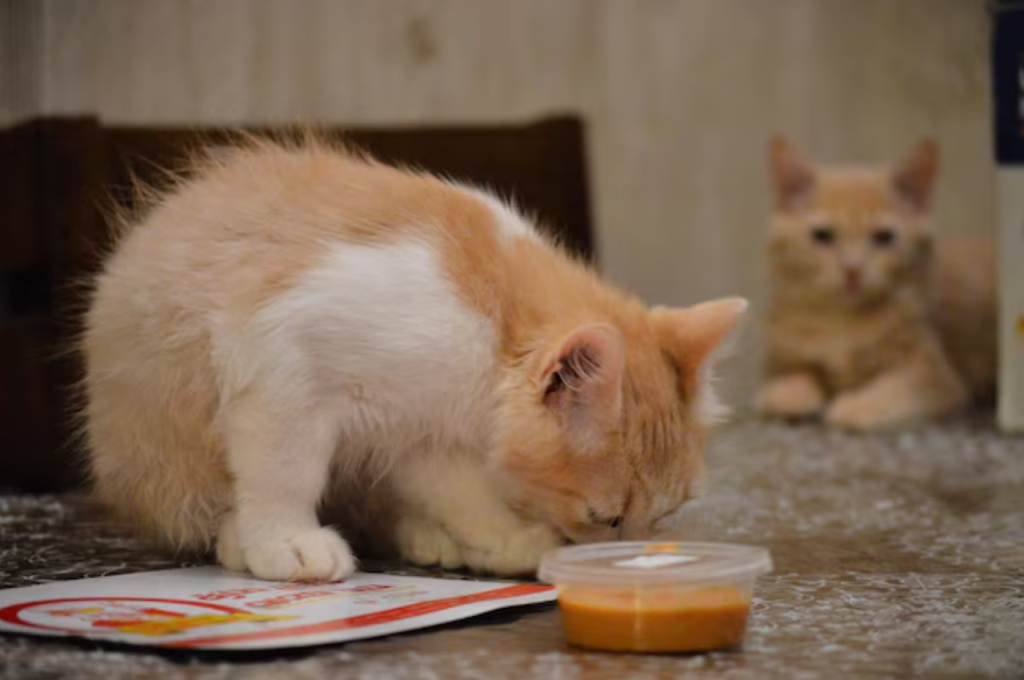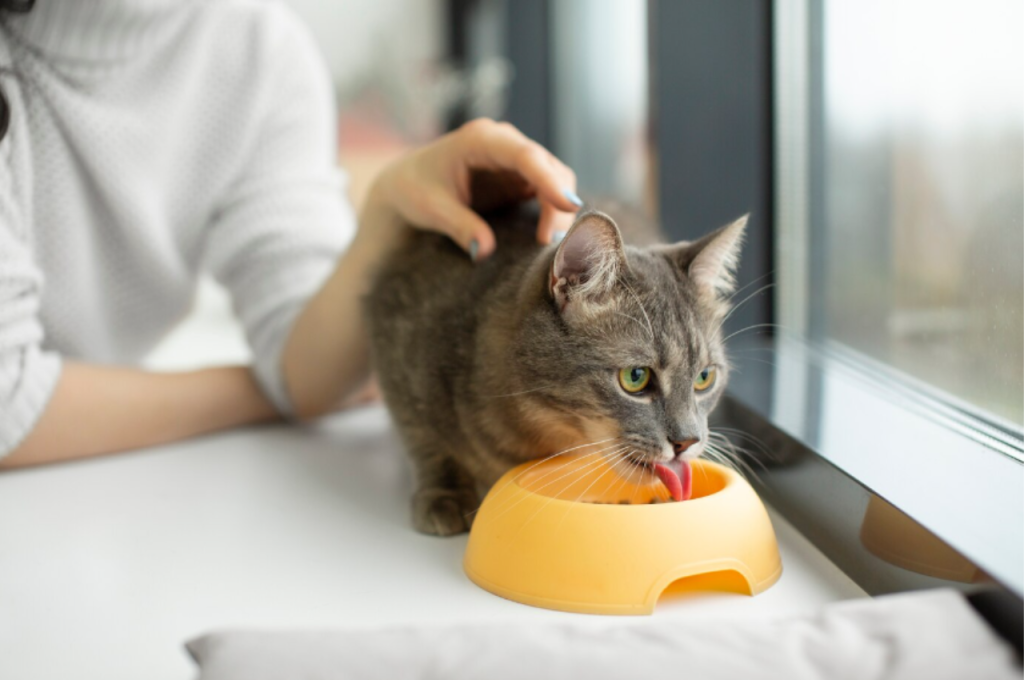Yes, cats can eat honey in moderation, but it is not recommended due to potential health risks. While honey is a natural sweetener, it contains high sugar levels that can lead to weight gain and dental issues in cats.
Cats are obligate carnivores, meaning their diet should primarily consist of meat. Honey doesn’t provide any essential nutrients for cats and can cause digestive upset or allergic reactions. It’s best to consult a veterinarian before giving honey to your cat.
Opt for cat-friendly treats and snacks to ensure your feline friend stays healthy and happy. Remember, your cat’s well-being should always come first when considering their diet and nutrition.
Nutritional Value of Honey
Cats are known to have specific dietary requirements, and pet owners need to be aware of what foods are safe for their feline friends. When it comes to honey, it is essential to consider its nutritional value before offering it to your cat.

Key Nutrients in Honey
Honey is rich in antioxidants, vitamins, and minerals that can benefit cats. Essential nutrients in honey include:
- Antioxidants
- Vitamins B2, B3, B5, and B6
- Minerals like calcium, potassium, and magnesium
Potential Benefits for Cats
Although cats are obligate carnivores, honey can offer some potential benefits when fed in moderation. These benefits include:
- Antioxidant properties that can boost immune health
- The energy boost from natural sugars
- Possible soothing effects on the digestive system
Risks Associated with Feeding Honey to Cats
Feeding honey to cats can pose risks, as cats lack the enzymes to process it. It can cause digestive upset, allergic reactions, and even lead to obesity due to its high sugar content.
Allergic Reactions in Cats
Cats, just like humans, can have allergic reactions to certain substances. While honey is generally safe for humans to consume, it can pose a risk to our feline friends. Some cats may develop allergies to honey, which can result in a range of symptoms. These can include itching, sneezing, coughing, and even difficulty breathing. It’s important to monitor your cat for any signs of an allergic reaction if you decide to feed them honey. If you notice any unusual symptoms, it’s best to consult with your veterinarian immediately.

Digestive Issues
Feeding honey to your cat can also lead to digestive issues. Cats have a unique digestive system that is not designed to process certain foods, and honey falls into this category. Although small amounts of honey may not cause any problems for some cats, others may experience gastrointestinal issues such as diarrhea or upset stomach. Additionally, excessive consumption of honey can lead to obesity in cats, which can have serious health consequences. It’s essential to exercise caution when offering honey to your kitty and observe their reaction closely.
Overall, while honey may be a natural and healthy alternative for humans, it may not be the best choice for cats. With the potential risks of allergic reactions and digestive issues, it’s crucial to consider alternative treats that are more suitable for our feline companions. If you have any concerns or questions about your cat’s diet, it’s always wise to reach out to your veterinarian for guidance. Remember, keeping your cat’s health and well-being at the forefront is the key to ensuring they live a happy and healthy life.
Guidelines for Safely Feeding Honey to Cats
Cats are notorious for being picky eaters, but now and then they may show an interest in honey. While honey is generally safe for human consumption, pet owners may wonder about its suitability for feline friends. However, it’s important to exercise caution when introducing honey to your cat’s diet. Below, we delve into the guidelines for safely feeding honey to cats.
Consulting Your Vet
Before adding anything new to your cat’s diet, it’s crucial to seek professional advice from a veterinarian. Vets can provide personalized recommendations based on your cat’s health profile, ensuring they don’t have any underlying conditions or allergies that could be aggravated by honey consumption. Consultation with a vet helps to mitigate potential risks and ensures your cat’s safety.
Moderation is Key
While honey itself isn’t toxic to cats, it’s essential to exercise moderation. Excessive consumption of honey can lead to digestive issues and weight gain in felines. Therefore, it’s advisable to limit their intake to small, occasional servings. Monitoring your cat’s reaction to honey and adjusting their portion size accordingly is key to ensuring their well-being.
Alternatives to Honey for Cats
Cats can be quite choosy eaters, and while honey is generally safe for them in small amounts, it’s important to note that some may be allergic to it. If you’re looking for alternatives to honey for your feline friend, there are plenty of healthy options to consider. From healthy treatment options to natural remedies, several alternatives can be beneficial for your cat’s overall health.
Healthy Treat Options
When it comes to healthy treat options for cats, it’s essential to focus on those that are both nutritious and appealing to your pet. Consider these alternatives to honey as occasional treats:
- Fresh, cooked fish or poultry.
- Small pieces of fruit such as melon or berries.
- Cat-safe vegetables like cucumber or steamed carrots.
Natural Remedies
In addition to healthy treatment options, natural remedies are also worth exploring to provide your cat with alternative sources of nutrition. These natural remedies can help promote your cat’s well-being and can serve as alternatives to honey:

- Coconut oil – can aid in digestion and promote a healthy coat
- Bone broth – provides essential nutrients and hydration
- Chamomile tea – can help calm an upset stomach or relieve stress
Remember, before introducing any new food or remedy to your cat’s diet, it’s crucial to consult with a veterinarian to ensure it’s safe and suitable for your pet’s individual needs.
Conclusion
To wrap up, while honey may have some potential health benefits for cats, it is crucial to exercise caution and moderation. Cats’ digestive systems are not designed to handle the natural sugars present in honey, and excessive consumption can lead to weight gain, dental problems, and even diabetes.
Consult with a veterinarian before introducing any new food to your feline friend’s diet to ensure their well-being and nutritional needs are met. Remember, the overall health and happiness of your furry companion should always be the top priority.
